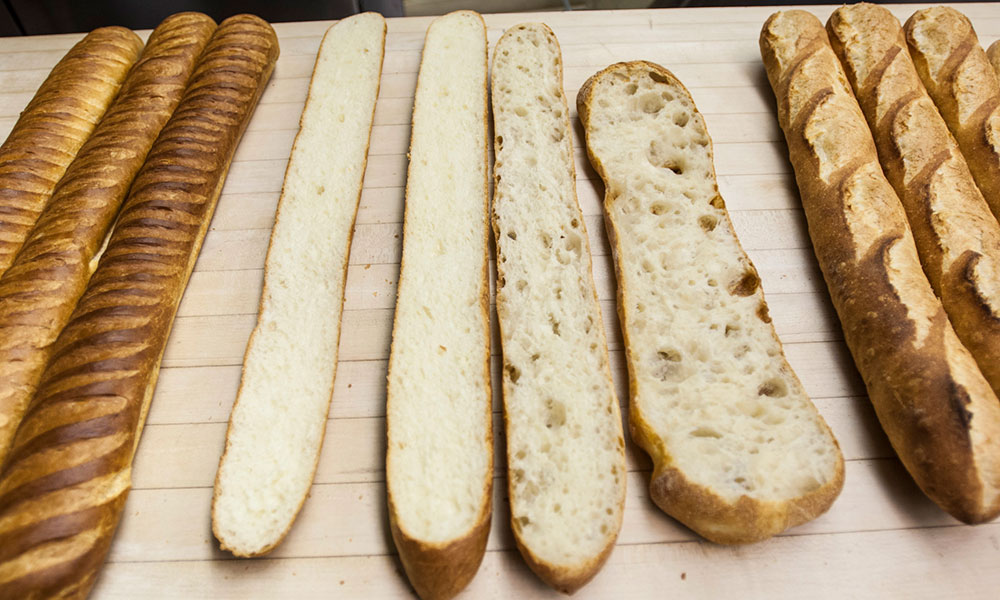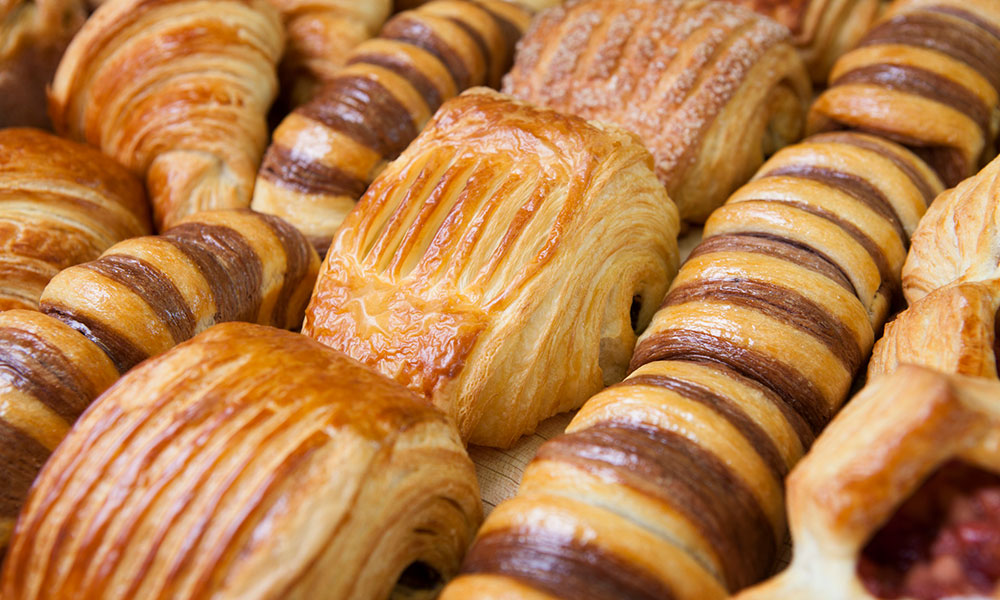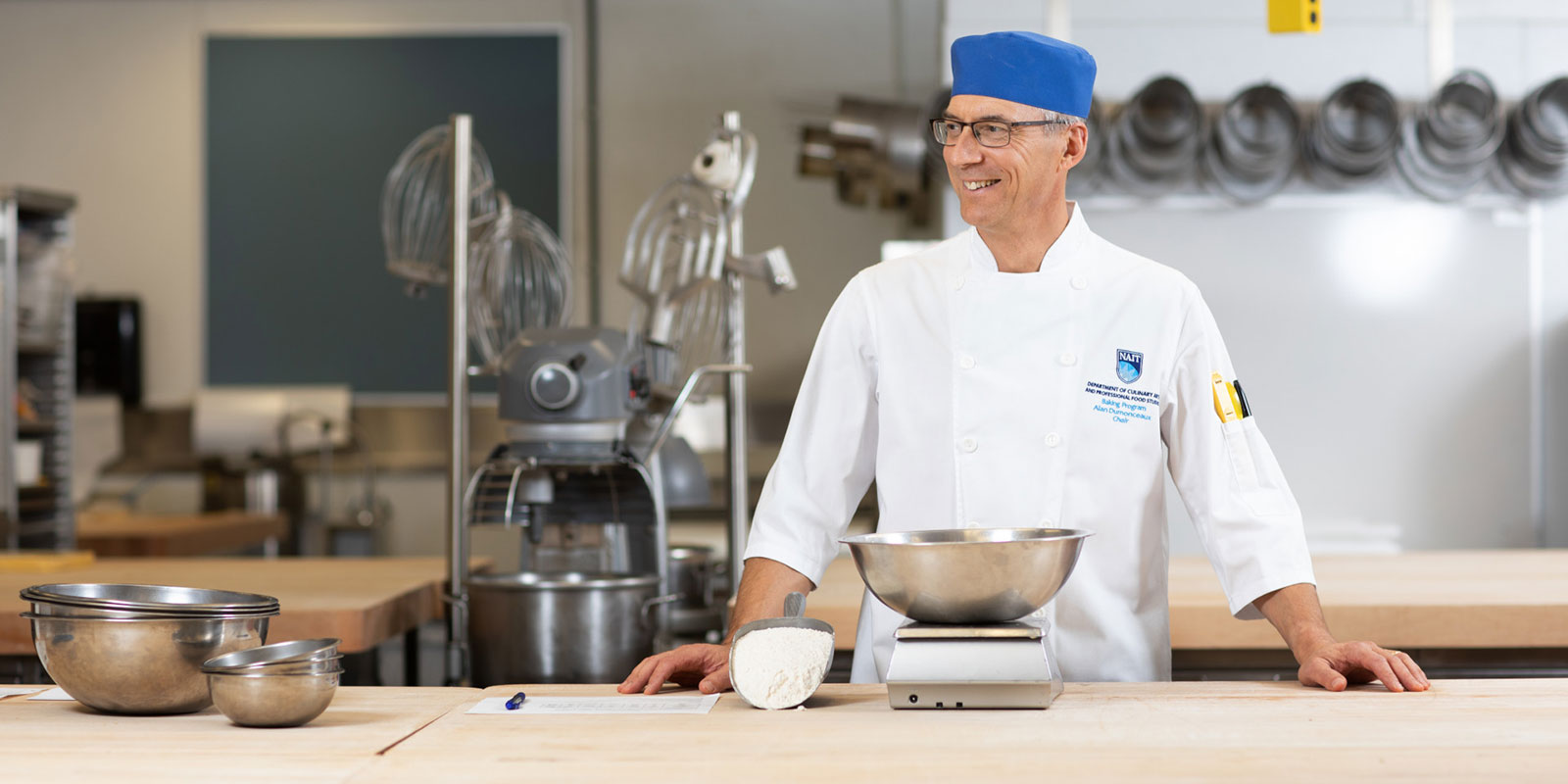Team qualifies for Coupe de Monde de la Boulangerie after historic win in Las Vegas
What happened in Vegas for Alan Dumonceaux and Team Canada did not, in fact, stay in Vegas.
In September, Team Canada, coached by Dumonceaux (Baking ’05) and featuring NAIT grad Jason Wang (Baking ’07), won the Americas selection competition for the 2026 Coupe de Monde de la Boulangerie, held at the Las Vegas Convention Centre. It was our nation’s best-ever performance at the competition and the first time placing above Team America.
“Winning felt fantastic, of course,” says Dumonceaux, Baking and Pastry Arts instructor. “It tells you that all your hard work, your creative ideas, your formulas, were at the level that we were better than everybody else. We are moving in the right direction to compete in France.”
But Dumonceaux, a veteran competitive baker, insists Team Canada can rest on neither its laurels nor its loaves as it prepares for that follow-up and final event in Europe. “This is the World Cup of baking,” he says.
Considered the “Olympics” of the bread and pastry world, the Coupe de Monde is the world’s most prestigious baking event. Competition this January in Paris will be fierce, and Team Canada will need to rise to new heights to succeed.
The greatest of competitive bake-offs

Professional baking competition is a team sport. A Coupe de Monde team has three members, each responsible for one event: bread, Viennoiserie (aka pastry), and the “showpiece,” which is an ornamental sculpture of bread products.
The requirements are prodigious. In Vegas, the bread category required 50 baguettes in two different shapes, an aromatic bread, a nutritional bread, and a sourdough bread, each in two shapes in 10 hours.
Team Canada used 135 different ingredients in Vegas, and will probably use more in Paris.
Each competition takes two days, with two hours of prep time on the first day and eight hours of baking on the second. Teams are judged on the appearance and taste of what they bake as well as cleanliness and sanitation.
It is a gruelling process.
“You have to work super fast and have great time management, organizational skills, sanitation skills,” says Dumonceaux.
In the months leading up to a competition, Dumonceaux helps team members develop their ideas, refine their techniques and build their formulas – not, Dumonceaux is adamant, recipes. “We need to be precise,” he says.
During the competition, the coach’s role is all about helping the team stay organized.
“When you are in the competition, your mind could be everywhere,” says Jason Wang. “You could be overlooking something totally obvious. You might not hear a timer, you turn around and your things are burned. Alan will say, ‘Your timer is going.’ He gives us confidence and makes us comfortable.”
Wang, Team Canada’s showpiece ace, is no stranger to the pressures of culinary competition. Now the executive pastry chef at the Shaw Conference Centre, he began competitive cooking soon after he started as a student at NAIT. He made showpieces from chocolate and sugar for the World Culinary Olympics in 2020 and 2024.
But he’d never made a showpiece with bread before Dumonceaux approached him earlier this year.
“Earlier this year when I went back to NAIT to say ‘Hi,’ Alan said, ‘I’m looking for someone to make a bread showpiece.’
“Of course I was interested!” says Wang. He sees the Coupe de Monde as his biggest competition yet. Grateful for the role, he even relishes the idea of all eyes being on his work, which will be live streamed. “It’s a showstopper!” he says of the sculpture category.
“Jason is very organized,” says Dumonceaux. “He’s very calm under pressure. In competition, something doesn’t always go your way. How you handle difficulty is what matters.”
Preparing for the big stage in Paris

Dumonceaux and Wang know Team Canada needs to improve for the big show in Paris, which will involve making additional improvised breads as well as five different sandwiches to display with the showpiece.
“We finished slightly early in Las Vegas,” says Dumonceaux. “Everyone will need to be an hour faster in Paris.”
Each member of Team Canada right now is working with Dumonceaux to finalize their ideas and formulas for Paris. They’ll soon begin group practices to work on coordination and cooperation. Each practice takes two days plus travel time. (The other two members, Florent Lehmann and Julien Bruyer, work in Montreal and Toronto, respectively.)
Both Wang and Dumonceaux hesitate to guess their odds of victory in Paris. But a win wouldn’t surprise Perry Michetti (Cook ’90).
“I’ve had bread and pastries all over the world. Alan’s the best,” says Michetti, Culinary Arts and Professional Food Studies associate dean. “It’s a science. He’s been working on this craft for so long, and he’s always wanting to get better. He’s never satisfied.”
Dumonceaux is less certain of his world-supreme status, but he does cop to Michetti’s charge of perpetual education.
“For over 40 years, this has been my focus and my passion,” he says. “I love to learn, that’s the greatest thing. I’m always trying to improve.”

